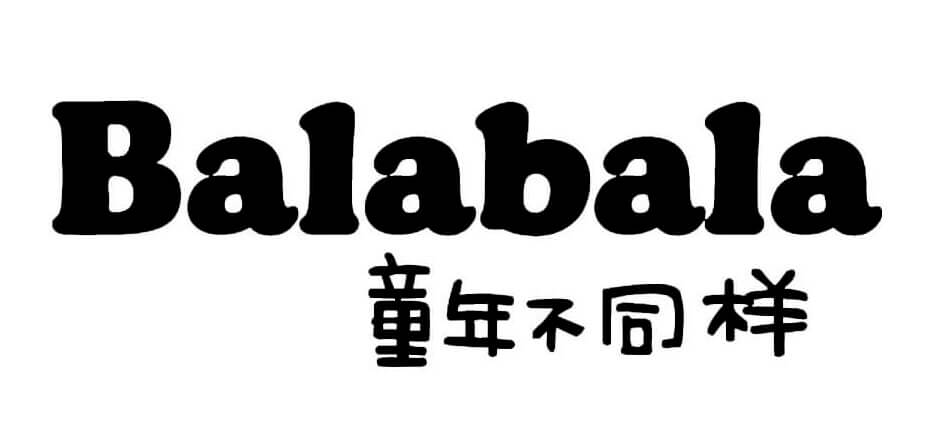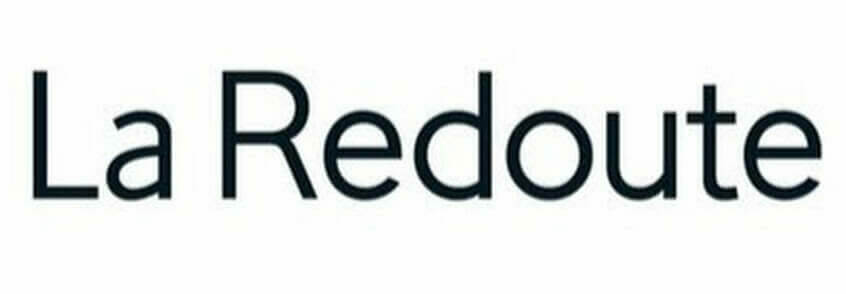Designed by Peclers Paris, the theme of the new season of Maison&Objet, TECH EDEN: A New Natural Awakening, explores the profound evolution of the relationship between science and nature, as the basis for a sustainable and desirable future. In INSPIRE ME!, the show’s inspirational forum, Peclers Paris has scripted the possible hospitality applications of this science/nature reconciliation. Meet some of the forum’s contributors…
Meet with Mâche&Maché, the hyper-future of food…
How did you meet and how did your project come about?
We met when working for the same innovation agency. We had both decided to specialize in food-related issues. Throughout the projects we were working on, we refined our vision of food innovation: we wanted to reconcile culinary know-how with technical and industrial processes. We then defined the approach we would use to achieve this. To do this, we each set out to strengthen our skills, Oriane by training as a chef and working in Michelin-starred, committed restaurants. Arnaud took over as head of design at a food tech start-up and developed an artistic practice around machines.
We then got together to set up the Mâche&Maché project, combining our skills in design, cooking, and food conception.
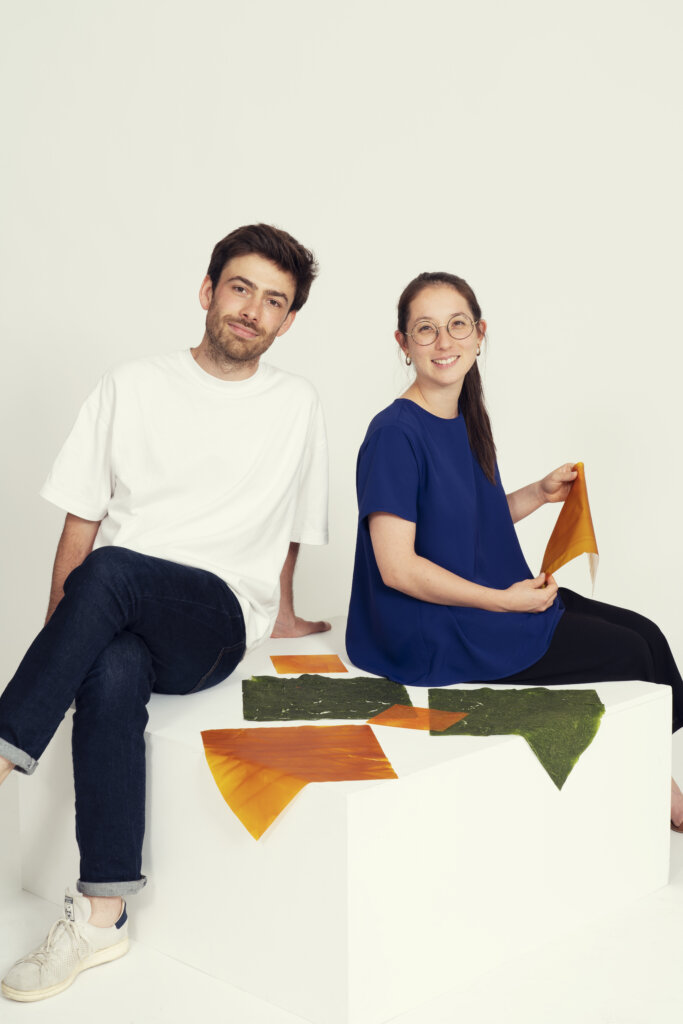
Unlike very niche approaches to culinary design, you aim to provide large-scale solutions for the food industry: can we reconcile industrial food with sustainability?
When we think of industrial food, we quickly think of ultra-processed products, with a very long list of ingredients, full of additives, and bad for our health and the environment.
However, the problem with industrial food is not that it is processed by machines. On the contrary, machines make it possible to produce in large quantities, reduce costs, and democratize products. Sustainable food shouldn’t be a luxury, and we’re convinced that machines and industrial creations can democratize this new way of consuming.
The limitations of the current model stem more from the economic logic applied (having the same taste everywhere, all the time, long shelf life, etc.). Industrial food can be sustainable, as long as we get away from the current economic logic and test new approaches: by integrating new ingredients, new processes, or new distribution methods and by being transparent about the processing stages and processes.
Your proposals involve the dematerialization/”rematerialization” of food (paper, liquids), a process that lies at the heart of representations of food in science fiction (see the film Green Sun). How do you imagine the food of tomorrow?
Our products offer new typologies, but each time serve as a support for foods that exist today and will exist tomorrow. Our papers are used to package and enhance the products they contain, and our drinks are used to showcase the craftsmanship of our mixologists.
Eating is not just about ingesting nutrients. It’s about creating a sensory experience, strengthening social ties, and passing on a culture or an identity. Food must remain a holistic experience.
Tomorrow’s food will still carry meaning, history, and values. It will continue to offer a total sensory experience while incorporating new production and processing methods in line with the evolution and preservation of our climates.
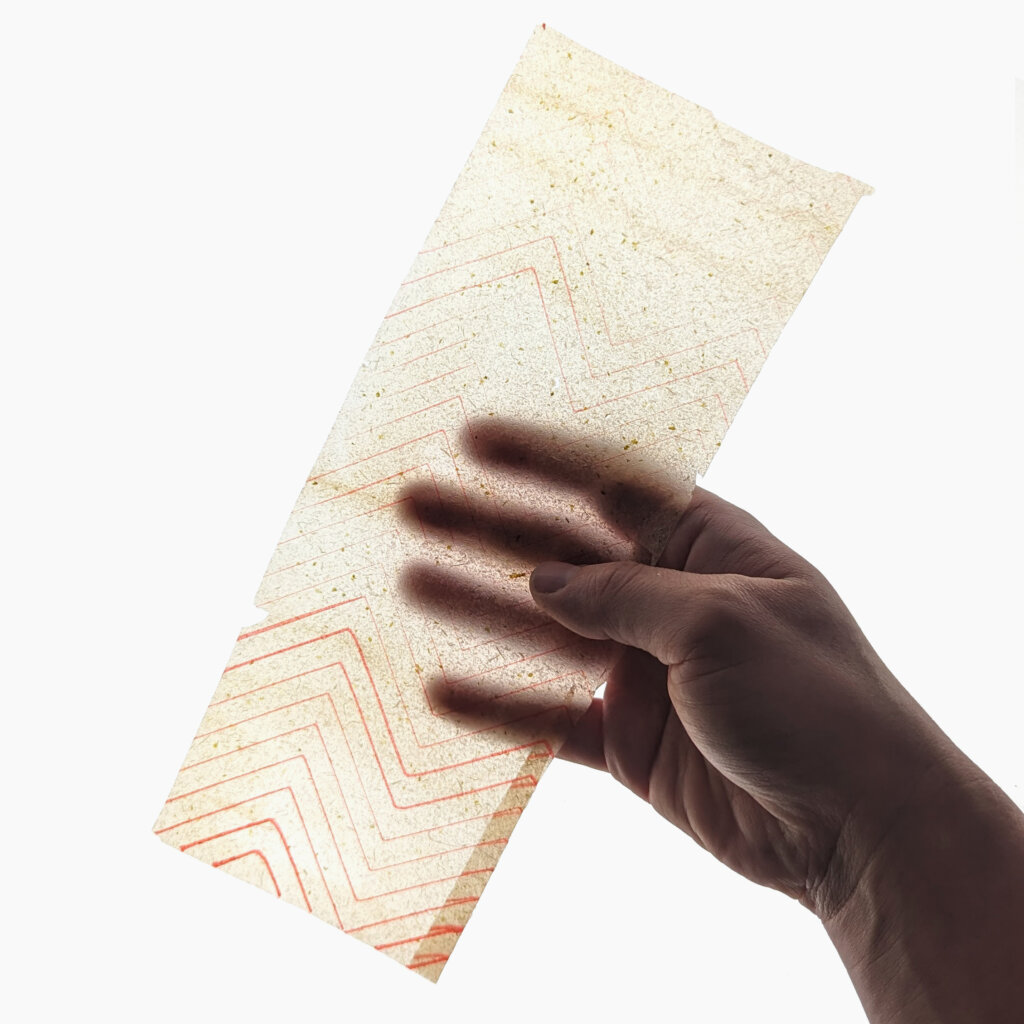
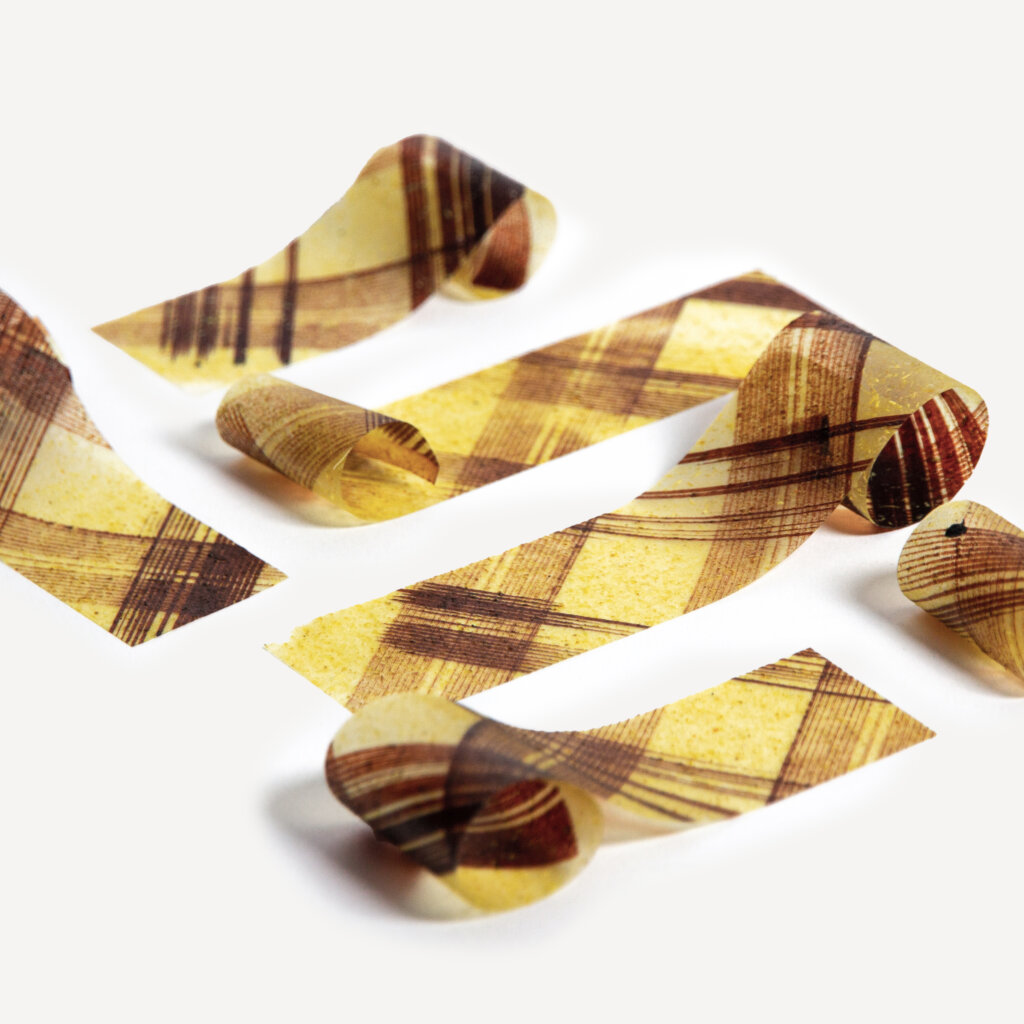
As a result of this approach, food becomes an almost decorative material: do you think of these two aspects at the same time, do they respond to each other?
Completely, we first taste food with our eyes. If it is to be widely accepted, sustainable food must offer a more desirable experience than today’s food. This invites us to offer new experiences while maintaining the demand for beauty, goodness and sustainability.
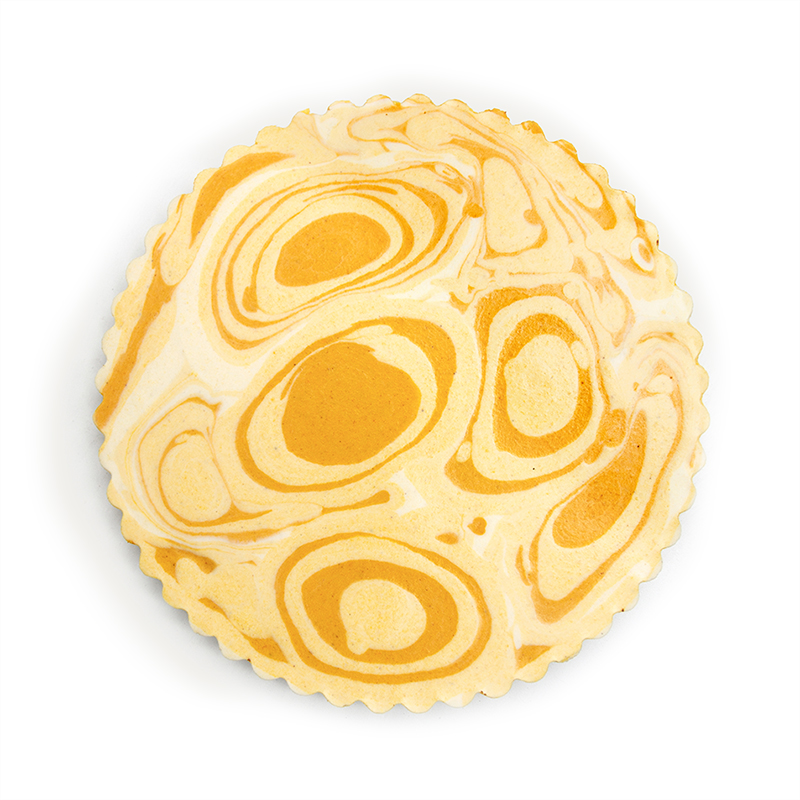
By the way, you reconcile craft and machine: can we talk about ‘augmented’ food? What does the machine allow you to do that would be impossible without it?
I don’t know if we can speak of a reconciliation between craft and machine. A pastry chef doesn’t beat his eggs by hand, he already uses a machine in his work. Our approach is to take these traditional technical gestures and confront them with new technologies.
The machine saves time, ensures reproducibility, and reduces costs. But above all, the machine allows you to think about your product differently. By integrating the constraints associated with the production tool from the outset, you force yourself to think from a different angle. This can lead to new types of product, or new ways of producing.
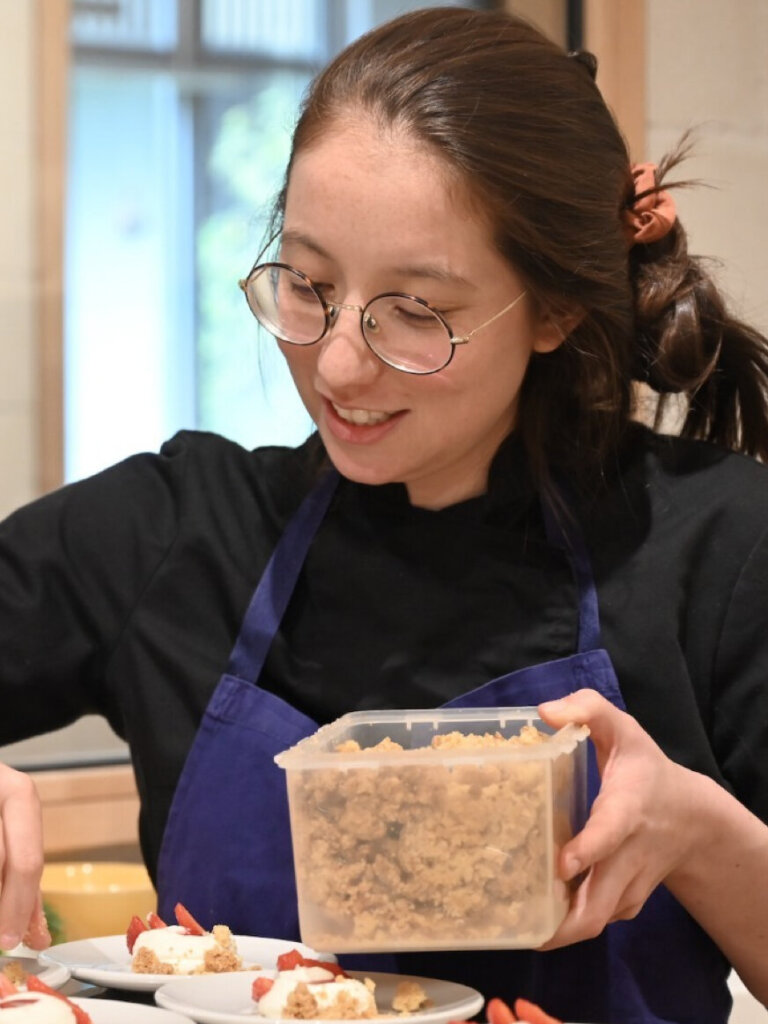
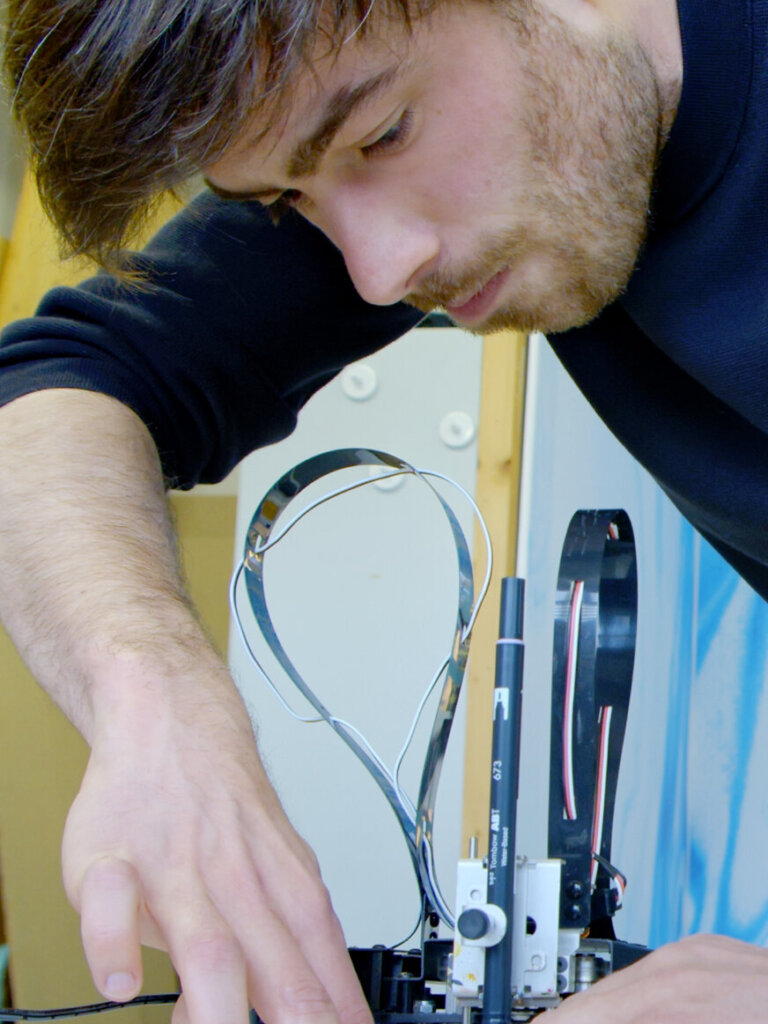
Come and explore the artistic endeavors of Mâche Mâché at Maison&Objet, taking place from January 18 to 22 at the heart of the inspiration forum in Hall 6. The prospective teams and designers at Peclers Paris have ingeniously showcased, in INSPIRE ME!, the potential applications within the hospitality sector stemming from the harmonious fusion of science and nature.
The INSPIRE ME! forum will welcome other inspiring designers and creators like Roxi Basa, Infrastructure Studio…
- Maison&Objet, 18-22 January 2024, Parc des Expositions Paris Nord Villepinte
- Forum INSPIRE ME! by Peclers Paris: Garden of the future, Hall 6
- Get a badge




